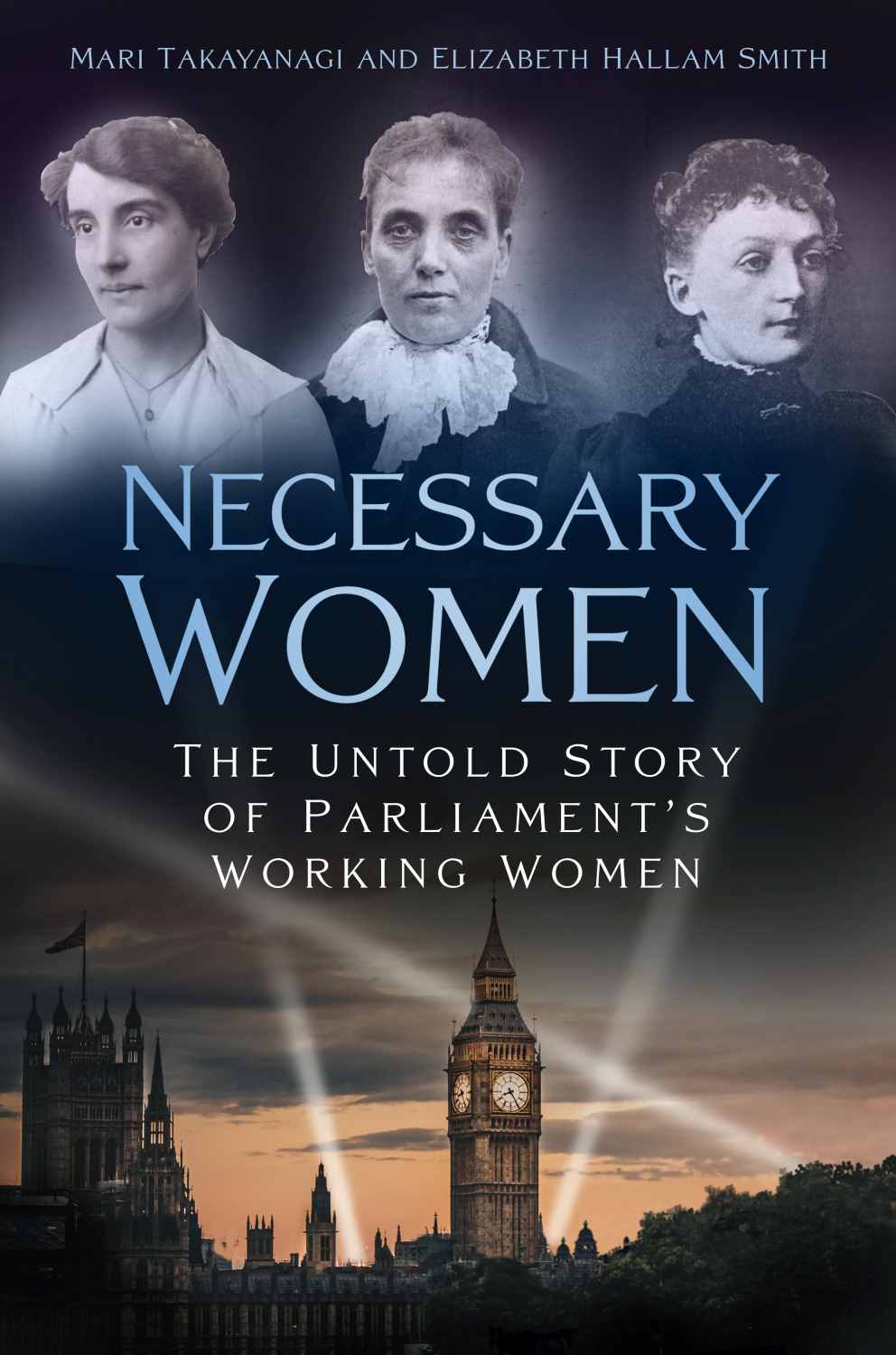Compelling: Baroness O’Grady reviews 'Necessary Women: The Untold Story of Parliament’s Working Women'
'Mrs Gully with her private secretary' | © Parliamentary Archives
3 min read
An important contribution to social history, Necessary Women reveals that the struggle for financial survival was as urgent for the working women of Parliament as obtaining the vote
Meet the working women of Parliament. Mullins, an enterprising young orange seller, labelled a slut. “Jane”, irreverent wit and waitress who rose to manage Bellamy’s kitchen. And Kathleen (Kay) Midwinter, whose entry into the previously male bastion of parliamentary clerks prompted a colleague to rue “another sanctuary gone”.
These are just some of the women behind the scenes who skivvied, schemed, and succeeded against the odds while keeping the wheels of Parliament turning. Necessary Women tells their compelling stories, often for the first time.
Drawing on parliamentary archives, government records and family histories, authors Mari Takayanagi and Elizabeth Hallam Smith chart the history of working women from the late eighteenth century onwards, inside Parliament and beyond.
The book is an important contribution to social history. It documents the chores, remuneration and true value of domestic service – once the single most important source of women’s employment – the impact of two world wars on job segregation, and the long campaign for equal pay and treatment. Critically, the tale is told through the real lives and experiences of women.
Wealth provided limited protection against misogyny. MPs’ wives were only permitted to observe parliamentary debates through the bars of a cage, the hot and cramped Ladies Gallery above the Speaker’s Chair, and earned the serjeant’s stinging rebuke whenever they rattled their fans against the grille in support of legislation.
It is the lives of cleaners, 'Girl Messengers' and typists which leap from the page
Suffragettes like Emily Wilding Davison, who famously hid in a House of Commons cupboard on census night, rightly secure their place at the heart of this history. Without a universal franchise, and a strong political voice, what hope for working women?
But it is the lives of cleaners, “Girl Messengers” and typists which leap from the page. For many women, the struggle for financial survival was as urgent as suffrage. Unlike the Lords, female Commons cleaners did not benefit from permanent contracts. Each Recess catapulted them off the payroll and into poverty. In 1919, a full year after the franchise was extended to better-off women, cleaners were still at war with the Treasury for secure contracts and sick pay.
Marriage bars and unequal pay rates were also progressively met with protest. In 1951, after her case for equal pay was raised in the Commons, Hansard reporter Jean Winder made history – not least because Hansard had to report it.
Inevitably the epilogue of Necessary Women asks how far have women come –but suggests that this is a story for others to tell.
In recent years Parliament has seen glass ceilings smashed as more women are appointed to senior posts. But women still make up less than a third of parliamentarians. And the gender profile of the cleaning and catering workforce has barely changed, with Black women most likely to be on low pay.
 Echoing the book’s description of the chaotic Old Palace, today’s parliamentary staff unions complain of vermin-infested kitchens, crumbling masonry and the risks of fire, leaks and asbestos. Too much work is still under-valued and under-paid. And women workers breaking their silence on sexual harassment would recognise all too well the abuse that Mullins endured.
Echoing the book’s description of the chaotic Old Palace, today’s parliamentary staff unions complain of vermin-infested kitchens, crumbling masonry and the risks of fire, leaks and asbestos. Too much work is still under-valued and under-paid. And women workers breaking their silence on sexual harassment would recognise all too well the abuse that Mullins endured.
On the evidence of this brilliantly written and researched book, I hope the authors will reconsider and write Necessary Women – the sequel.
Baroness O’Grady is a Labour peer
Necessary Women: The Untold Story of Parliament’s Working Women
By: Dr Mari Takayanagi & Dr Elizabeth Hallam Smith
Publisher: The History Press
